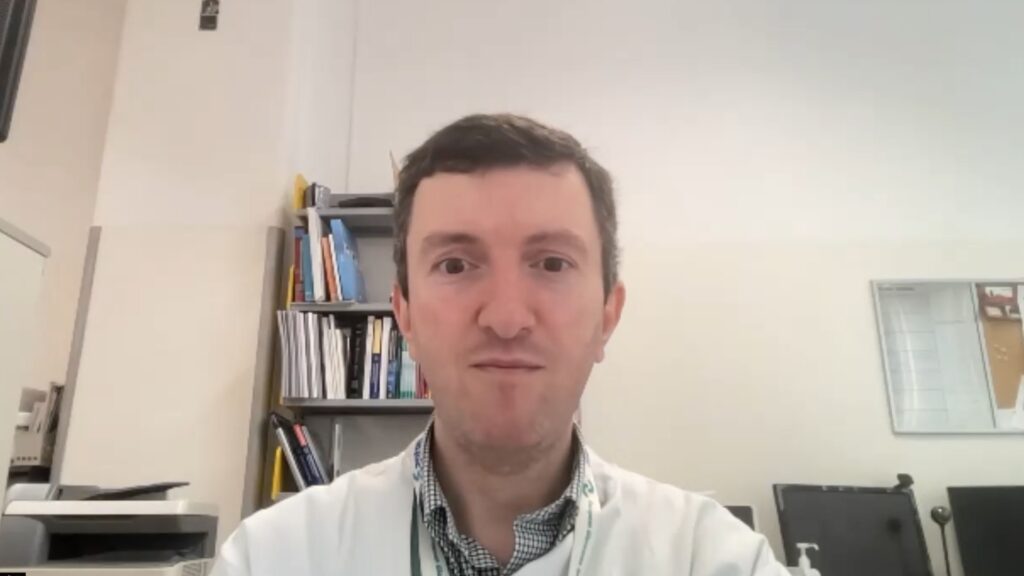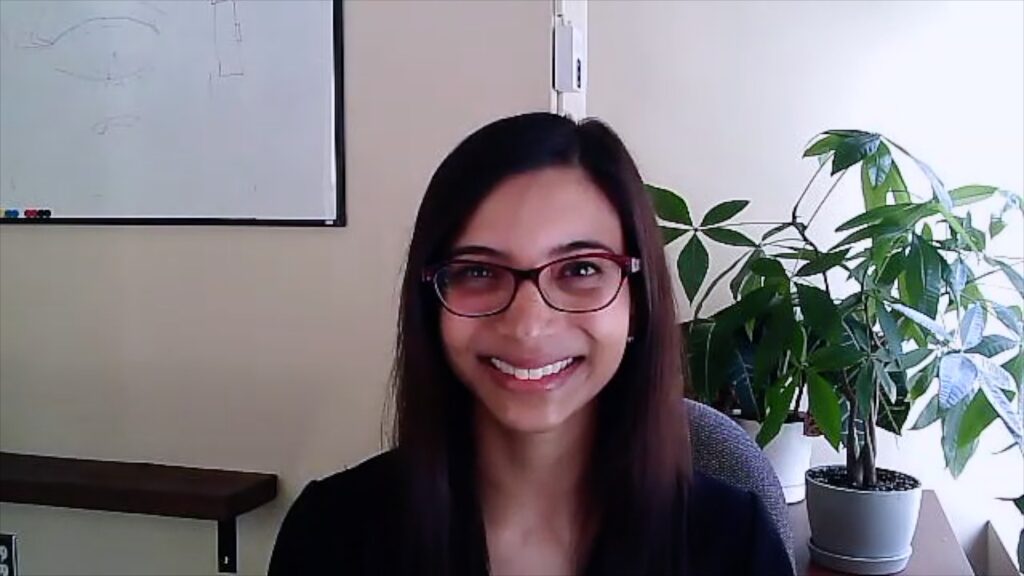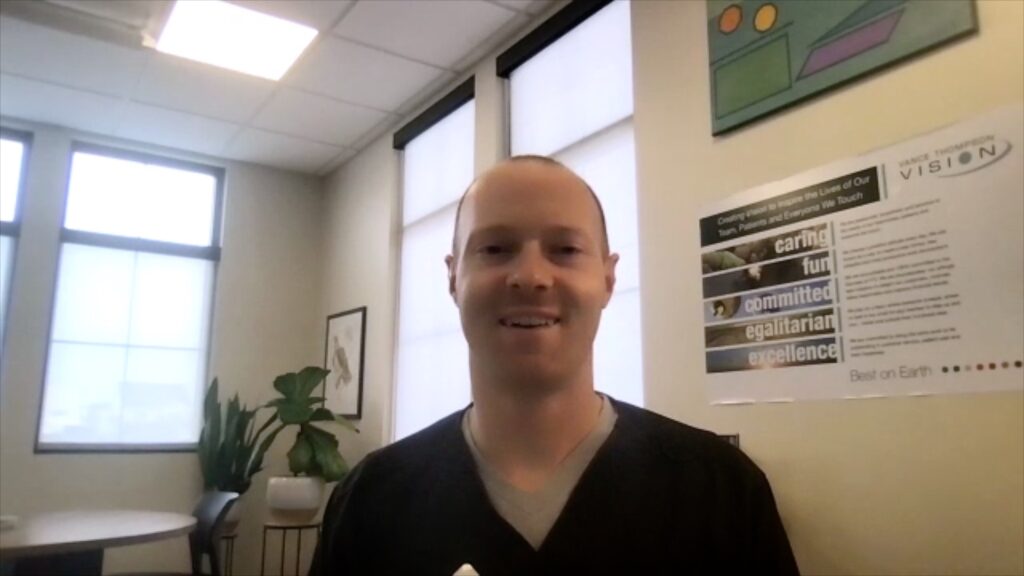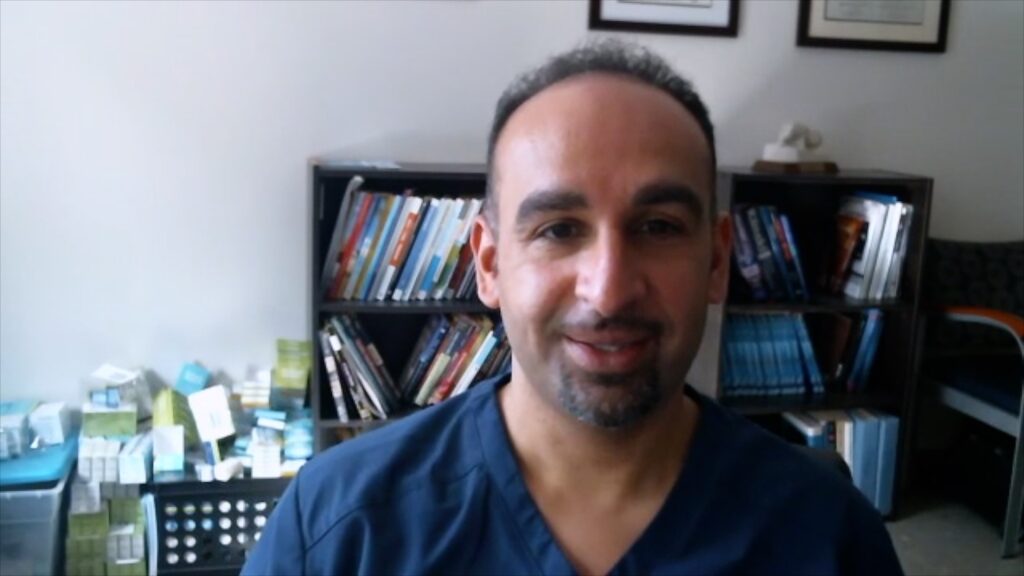Endothelial cell safety is an important factor to consider when selecting early surgical treatment for glaucoma patients. It was a pleasure to speak with Dr Ticiana De Francesco (Hospital de Olhos Leiria de Andrade (HOLA) Fortaleza, Brazil) around her study on comparing the effect of cataract surgery and iStent inject, Hydrus micro-stent, or CyPass micro-stent on corneal endothelial cell density (ECD) and endothelial cell loss (ECL) vs cataract surgery alone.
The presentation entitled ‘Corneal Endothelial Safety Profile of Three Different Minimally Invasive Glaucoma Surgery Stents’ was presented at the 2023 American Glaucoma Society Annual Meeting, March 02-05, 2023
Questions:
- What were the aims, design and patient population of your study? (0:27)
- What were the findings of the study and what are their clinical impact? (1:10)
- What questions remain unanswered and what future studies are planned? (3:09)
Disclosures: Ticiana De Francesco is a consultant for Abbvie, Elios, Glaukos, Iantrek, Myra Vision, Nova Eye Medical, Via Lase and Zeiss.
Support: Interview and filming supported by Touch Medical Media Ltd. Interview conducted by Shanice Allen.
Filmed in coverage of the virtual AGS 2023.
Click here for more content with Dr Ticiana De Francesco.
Transcript
Hello I’m Ticiana De Francesco, I’m a Glaucoma specialist. I’m currently doing a PhD on glaucoma surgical outcomes. I work in Brazil in teaching in the private clinic, and I also have an adjunct position at John Moran Eye Center at the University of Utah and I’m really happy to be here today.
What were the aims, design and patient population of your study? (0:27)
The goal of our study was to compare the effect of cataract surgery with either the iStent inject, Hydrus micro-stent, or CyPass micro-stent on corneal endothelial cell density (ECD) and endothelial cell loss versus cataract surgery standalone. So basically we compare the three trials and we evaluate those parameters, the endothelial cell density and endothelial cell loss. We we look for clinically significant endothelial cell loss that is more than 30% of endothelial cell loss compared to the baseline.
What were the findings of the study and what are their clinical impact? (1:10)
So what we found was up to five years after the follow up, we found that the patients that were in the group of the iStent had no difference in the endothelial cells density and in the clinically significant endothelial cell loss when compared to the controls. The patients that had the Hydrus or the CyPass implanted, they had lower endothelial cell density and they had more clinically significant cell loss when compared to the controls. It’s important to mention that the patients that underwent Hydrus, the endothelial cell rate for the five years was not different from the controls. What we found for the Hydrus group is that the endothelial cell loss happened initially just right after surgery so we assume that is more related to the surgical trauma itself then the device, for the five years the device was well tolerable for the patients. For the CyPass group we found that for the first two years the endothelial cell loss was reasonably similar to the controls but after two years we found more significant endothelial cell loss compared to the controls and for the CyPass we saw that the endothelial cells loss was very much associated to the position of the device. For the patients that had the device correctly implanted, the rate of endothelial cell loss was very similar to the controls. For the patients that had more rings of the device appearing like the device was more anterior with more rings showing they had the higher rates of endothelial cell loss.
What questions remain unanswered and what future studies are planned? (3:09)
I would say we need for long term follow up for MiGS studies. We need to understand better which MiGS device is better for which patient and I would say we need to perform better the patient selection to get better outcomes. I think it would be amazing if it would have a way to assess the benefit of MiGS beyond IOP, I think we cannot have a closed mind and just focus on IOP. We need to think in the patient as the whole scenario and think about cost effectiveness, quality of life and safety. I would say that the few I hope the future studies can provide that.
Subtitles and transcript were auto-generated.











